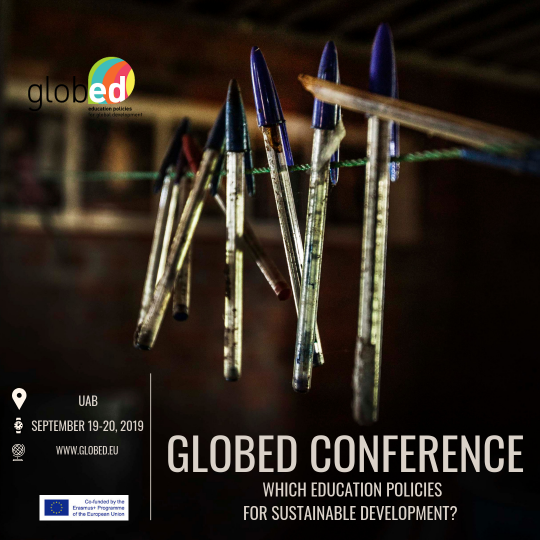
Four years after the approval of the Sustainable Development Goals, the world is simultaneously making progresses and drawbacks. For the first time in more than a decade, and especially due to violent conflicts, the number of hungry people in the world increased from 777 million in 2015 to 815 million in 2016. While extreme poverty has eased considerably since 1990, pockets of the worst forms of poverty persist. Despite the maternal mortality ratio has declined by 37 per cent since 2000, 303.000 women around the world died due to complications during pregnancy or childbirth. While economic growth and labour productivity are increasing, their global distribution is very unequal, with significant lower growth rates in less developed countries. Youth are three times more likely to be unemployed than adults, with the global youth unemployment rate at 13 per cent in 2017 and gender inequality in earnings is still pervasive (12,5% less according to the SDG Report 2018). In education, we observe also advances and shortcomings. While participation in early childhood education and primary education are increasing, 617 million primary and lower secondary students—58 per cent of that age group—are not achieving minimum proficiency in reading and mathematics. While technological innovations are entering most classrooms in the developed world, in 2016 only 34 per cent of primary schools in less-developed countries had electricity and less than 40 per cent were equipped with basic handwashing facilities.
Establishing clear targets and indicators for development is useful for measuring progress as well as for identifying the many shortcomings if the 2030 SDG Agenda wants to be achieved. Beyond being a target in itself, educational development is crucial for achieving other inclusive development goals. Four years after the approval of the SDG agenda GLOBED aims to open reflections and debates on whether education policies are affecting development, and in which sense: enabling development, or harming it?. Do governments develop inclusive education policies that provide equal opportunities for all? Is education governance in service of those most needed, or is it subject to interest groups’ economic interests and ideologies? Are policies boosting education quality and innovation or are they subordinated to what is measured in international learning student assessments? Are global education policies tackling inequalities or increasing segregation? Are education policies intertwined with other development policies? Do they serve to inclusive development?
The first GLOBED Conference will address these and other questions in the Universitat Autònoma de Barcelona (UAB) the 19th and 20th of September 2019.
PROGRAM:
Thursday, September 19
09:30 – 10:00
Conference Inaugural Session
Welcoming speech by the Dean of the Faculty of Political Science and Sociology, Ms. Laura Feliu
Opening speech by the Coordinator of GLOBED M.A., Prof. Xavier Bonal
Aula Magna, Faculty of Law
10:00 – 11:00
Keynote speech
Dr. Jordan Naidoo, Director of Education 2030 Support and Coordination at UNESCO
Aula Magna, Faculty of Law
11:00 – 11:30
Coffee break
11:30 – 13:00
Parallel panel presentations
Aula Magna, Faculty of Law
Room 7, Faculty of Law
13:00 – 14:00
Lunch (in charge of everyone)
14:00 – 17:00
Parallel panel presentations
Aula Magna, Faculty of Law
Room 7, Faculty of Law
Friday, September 20
09:30 – 11:00
Parallel panel presentations
Aula Magna, Faculty of Law
Sala de Vistes, Faculty of Law
11:00 – 11:30
Coffee break
11:30 – 13:00
Parallel panel presentations
Aula Magna, Faculty of Law
Sala de Vistes, Faculty of Law
13:00 – 14:00
Lunch (in charge of everyone)
14:00 – 15:00
Keynote speech
Prof. Karen Mundy, leading expert on education in the developing world
Aula Magna, Faculty of Law
15:00 – 15:30
Closing session speech
Aula Magna, Faculty of Law
